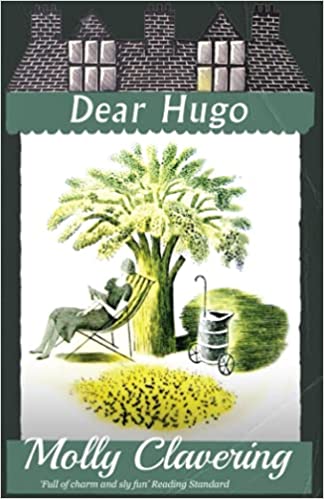Sara Montieth has purchased a cottage in a small Scottish border village because she wants a quiet life. She has chosen the village because it was the boyhood home of her young man Ivo, who was killed in the war, and his brother Hugo.
Dear Hugo is an epistemological novel, consisting of Sara’s letters to Hugo, whom she has never met and who lives in Nairobi. It is about her daily life, the people she likes and dislikes, the events in the village. Although she wanted a quiet life, hers becomes eventful, especially after her cousin, who is newly remarried, asks her to take his 13-year-old son Arthur during his school holidays. It’s even more so after Hugo sends them a puppy.
The letters are written with gentle humor and describe all the village characters, including Miss Bonaly, a disapproving spinster who urges Sara not to hire Madge Marchbanks, an unwed mother, to help with the housework, and kindly, perceptive Mrs. Keith, who knew Ivo and Hugo as boys.
This is a nice, gentle novel of village life. It didn’t end quite the way I was hoping for, but I enjoyed it very much.


I finished this yesterday afternoon. As you say, a lovely read, somewhat like D. E. Stevenson’s writings.
I, too, was surprised by the ending, as it seemed to be leading to a traditional light romantic happily ever after. And yet, as I thought about it, I was glad that Clavering chose a different “happily ever after.” This was the period where such choices were becoming more frequent (I’m currently reading The Mutual Admiration Society How Dorothy L. Sayers and her Oxford Circle Remade the World for Women by Mo Mourton) and the British women of the 1950s had more choices available to them (as did American women). Since I took that same alternative route, it was exhilarating to read a book that acknowledged that route. I think in my entire life I’ve only read three or four books with such an ending.
I couldn’t figure out, though, how Sara earned her living. Did she have an inheritance? Did I completely miss a marriage to Ivo? I know she received money from Atty’s father—and wasn’t the father something else? But that was for the boy’s expenses, not hers. . .
I also appreciated the fact that Miss Baloney (my name for her) didn’t have an overwhelming part in the novel.
I do wonder, though, how the relationship engineered at the end of the book will turn out. . .sonder if Clavering was planning a sequel.
sue
Maybe she was planning a sequel. I guess I assumed she had some income of her own.
Saving as I have this TBR!